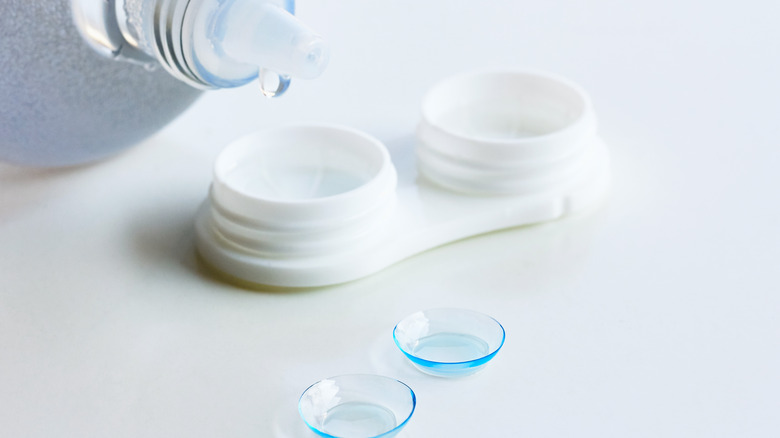Contact lenses have provided millions of individuals with the freedom to see clearly without the encumbrance of eyeglasses. However, maintaining their pristine condition and ensuring eye health requires diligent care, with a pivotal role played by contact lens cleaners. In this article, we’ll explore the science behind contact lens cleaner, their types, and the critical role they play in safeguarding eye comfort and vision clarity.
The Science of Contact Lens Cleaners
Contact lens cleaners are specially formulated solutions designed to remove debris, deposits, and microorganisms from the surface of contact lenses. The daily wear of lenses exposes them to proteins, lipids, bacteria, and environmental pollutants, all of which can compromise vision quality and lead to discomfort or even eye infections. The science behind contact lens cleaners involves understanding the chemistry necessary to effectively cleanse the lenses while preserving their material integrity.
Types of Contact Lens Cleaners
- Daily Cleaners: These are gentle cleaning solutions that can be used on a daily basis. They help remove dirt, debris, and cosmetic residues from the lens surface, enhancing comfort and clarity. Daily cleaners are suitable for use alongside multipurpose or hydrogen peroxide-based solutions.
- Enzymatic Cleaners: These specialized cleaners contain enzymes that break down protein deposits that accumulate on the lens surface over time. They are typically used weekly to ensure thorough cleaning of the lenses and prevent discomfort caused by protein buildup.
- Multipurpose Solutions: While primarily known for disinfecting and storing contact lenses, many multipurpose solutions also have cleaning properties. They help in removing daily debris and buildup, reducing the need for separate daily cleaners.
The Importance of Using Contact Lens Cleaners
- Enhanced Comfort: Clean contact lenses are more comfortable to wear, reducing the likelihood of dryness, irritation, or a gritty feeling in the eyes.
- Maintained Clarity: A clean lens surface ensures optimal visual acuity by preventing hazy or blurred vision caused by debris accumulation.
- Reduced Risk of Infections: Regular use of contact lens cleaners helps prevent bacterial and fungal contamination, reducing the risk of eye infections that can lead to discomfort and potentially severe complications.
- Longevity of Lenses: Proper cleaning can extend the lifespan of contact lenses, maximizing your investment and minimizing the need for premature replacement.
Selecting the Right Contact Lens Cleaner
Choosing the appropriate contact lens cleaner is vital for effective lens care. Consider these factors:
- Lens Material: Different lens materials may require specific cleaning formulations. Always choose a cleaner compatible with your lens type.
- Preservative Sensitivity: If you have sensitivity to preservatives, opt for preservative-free or low-preservative cleaners.
- Cleaning Routine: Assess your daily routine and decide whether you need a daily cleaner, enzymatic cleaner, or a combination of both.
- Eye Care Professional’s Recommendation: Your eye care provider’s advice is invaluable. They can suggest the best cleaner based on your prescription, eye health, and lifestyle.
Proper Usage Guidelines
- Hands-On Cleanliness: Wash your hands thoroughly before handling lenses or applying cleaners.
- Rub and Rinse: Follow the instructions on the cleaner’s label. For daily cleaners, gently rub the lenses with cleaner and rinse them thoroughly.
- Enzymatic Cleaning: If using an enzymatic cleaner, soak your lenses as directed before rinsing and disinfecting.
- Lens Case: Regularly clean and replace your lens case to prevent contamination.
Conclusion
Contact lens cleaners are an integral part of maintaining clear vision, eye comfort, and overall ocular health. Their formulation, coupled with the latest scientific advancements, ensures that contact lens wearers can enjoy the benefits of lenses without compromising their eyes. By selecting the appropriate cleaner, adhering to proper usage guidelines, and consulting your eye care professional, you can experience the joy of crisp and clear vision while wearing your contact lenses.









































